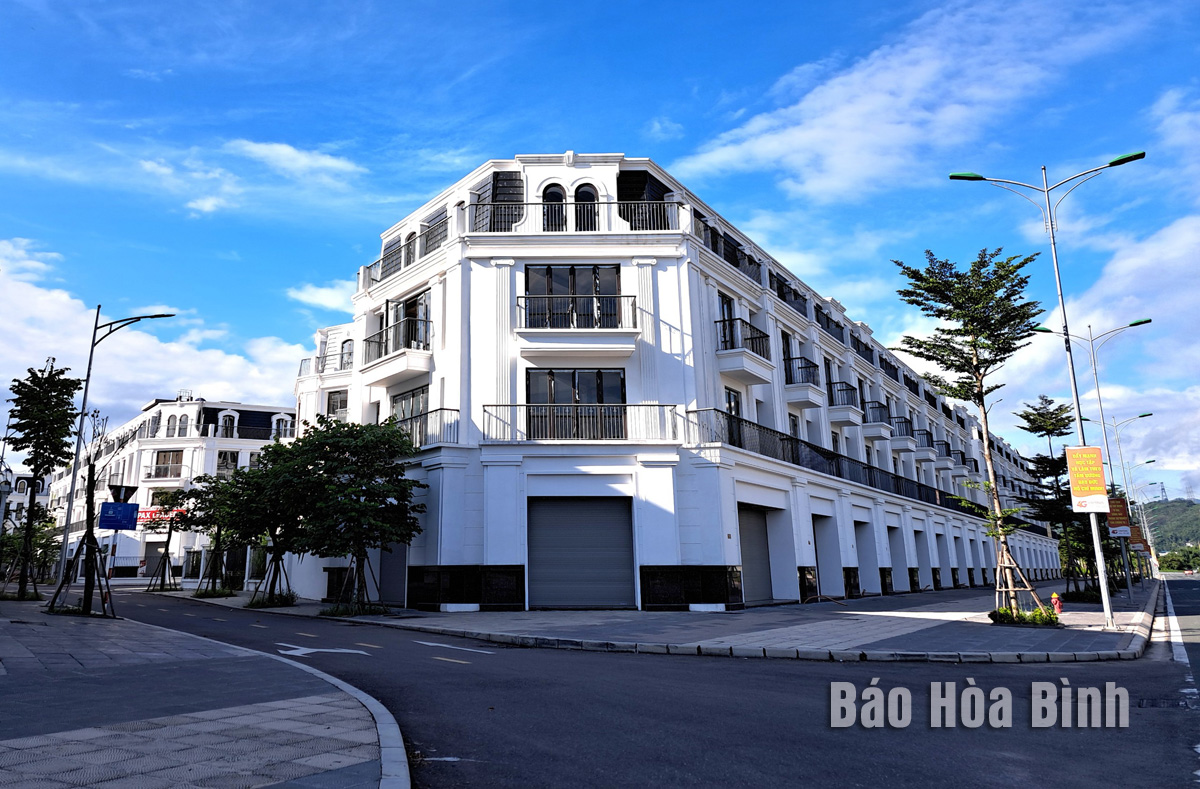The State budget collection in Hoa Binh province has received constant attention and directions from the provincial Party Committee, People’s Council and People’s Committee, the Ministry of Finance and the General Department of Taxation, along with effective coordination from all-level administrations and sectors.
By the end of May 2024, the state budget revenue was estimated at 2.88
trillion VND (nearly 113.23 million USD), equivalent to 71% of this year’s
target set by the Prime Minister, 50% of the target set by the provincial
People’s Council, and 196% of the figure in the same period last year.
Hoa Binh has
recorded relatively good budget collection from many sources such as the
foreign invested sector, the industry, trade and non-state sectors, personal
income tax, environmental protection tax, charges, fees, and land use fees.
The state budget collection so far this year has
posted breakthroughs compared to the same period last year. However, it is a
fact that revenue sources remain unsustainable and still depend much on land
use fees and the Hoa Binh Hydropower Company. Meanwhile, tax arrears remain
very high. Two-thirds of the 2020 - 2025 tenure has passed, but Hoa Binh failed
to achieve the budget collection targets for some years. Therefore, it is hard
to reach the revenue target of 10 trillion VND for 2025.
At many forums and meetings, the provincial
Party Committee, People’s Council, and People’s Committee discussed causes of
the poor performance in budget collection. One of the main causes is that the
nurturing of revenue resources remains limited. Changes in the collection
policy in recent years also form one of the causes. Others include the slow
implementation of industrial park and cluster projects, ineffective investment
attraction, some investors’ weak capacity, and businesses’ small and medium
sizes, limited financial capacity, and slow recovery from impacts of the
COVID-19 pandemic.
The state budget collection plays a highly
important role in ensuring resources for local socio-economic development.
Increasing the revenue aims to improve the quality of people’s life, build
modern and comprehensive infrastructure, guarantee local budget efficiency, and
gradually reduce the dependence on support from the government. Therefore, it
is considered a task of leading importance.
To speed up the state budget collection to
fulfill this year’s task and secure collection sustainability, the Hoa Binh
steering board for promoting the state budget collection and contribution said
firstly, it is necessary to complete zoning plans to serve as the basis for
implementing projects. It is important to accelerate land auctions, land use
fee collection, and the re-organisation of state agencies’ properties;
implement comprehensive measures to strictly manage local revenue sources; and enhance
inspection and examination to prevent tax losses and evasion so as to bring tax
arrears to less than 8% of the total state budget collection.
Another measure is to step up communications and
tax management over online business, e-commerce, telecommunication and internet
services, and especially the use of e-invoices.
The province’s viewpoint is to diversify revenue
sources to promote economic sectors’ contributions to the state budget and
ensure collection sustainability.
As enterprises, cooperatives, and investment
projects are the main and long-term source of budget collection, authorities
also need to create favourable conditions for those taxpayers to operate
profitably to nurture revenue sources.
In Lac Thuy district, communes have been succeeded in promoting their One Commune-One Product (OCOP) products while others are still struggling to position their typical farming products in market. Some communes in the district still fail to have their products met OCOP programme’s requirements, while others have seen their certifications expired.
The inspectorate agency of Hoa Binh province has issued Official Dispatch No. 1090/TTr-PCTN to provincial departments, agencies, localities, business associations, enterprises, and investors regarding measures to improve informal component indexes of the Provincial Competitiveness Index (PCI).
Hoa Binh is taking concrete steps to improve its investment environment, with a strong focus on supporting businesses, settling obstacles for strategic investors, and creating opportunities for robust development in the coming years.
Under the blazing early summer sun, the construction site of Nhuan Trach Industrial Park (IP) in Luong Son district is abuzz with activities from dawn to dusk, a testament to the determination of the investor to meet their construction targets on schedule.


